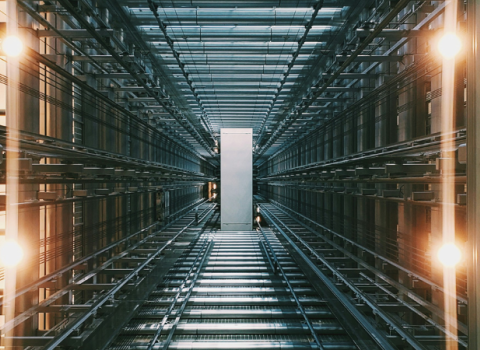New centre will see Imperial and Tata Steel partner to develop innovative new manufacturing processes to help decarbonise steel production.
The Centre for Innovation in Sustainable Design and Manufacturing, a partnership between Imperial College London and the multinational steel manufacturer Tata Steel, will develop innovative new manufacturing processes to help decarbonise steel production.
The £10 million Centre will enable the development of high performing and sustainable products in the automotive and clean energy industries through new types of steel and other new materials, and steel combined with other materials.
Lighter and stronger types of steel, and steel when combined with other materials such as composites, could foster more energy-efficient and affordable vehicles and clean energy generation.
Professor Mary Ryan, Vice-Provost (Research and Enterprise) at Imperial College London and co-chair of the Governing Council of the Centre, said: “Drawing on Imperial and Tata Steel’s combined expertise, this new Centre will work to reduce the environmental impact in steel production and in key sectors that use steel, like the clean energy sector.
“To create a zero-pollution future, it’s vital that we prioritise systematic transformation of industrial systems. By doing this, the new Centre will contribute to the creation of a high tech and economically successful steel industry, both in the UK and across the world.”
Addressing key global challenges
Tata Steel will benefit from the expertise of Imperial academics both in the Department of Mechanical Engineering and across the university. The Centre will also incorporate an accelerator programme designed to support the rapid transfer of new insights to the industry, with Imperial researchers working to develop new technologies to early stages of readiness that will become available for further development and commercialisation by Tata Steel.
Professor Nigel Brandon OBE, Dean of Imperial's Faculty of Engineering, said: “This new Centre is a great example of how Imperial’s research can have real-world impact and address a key global challenge.
“Innovative manufacturing processes are urgently needed to decarbonise steel production and accelerate the transition to a more sustainable steel industry. By combining Imperial’s academic expertise and Tata Steel’s valuable insight and experience in this industry, we will maximise the impact of our research to benefit people around the world.”
Cleaner, greener steel manufacturing processes
Imperial uses research partnerships with industry to translate academic expertise into practical solutions to real-world challenges, including in sustainability, backed by the Imperial-wide Transition to Zero Pollution initiative. Tata Steel has a strategic aim to grow its technological capabilities and use high tech manufacturing processes and products.
Professor Jianguo Lin in the Department of Mechanical Engineering at Imperial and director of the Centre said: “We have had a close relationship with Tata Steel for many years and we’re excited to begin this new initiative to explore future, cleaner, greener steel manufacturing processes and materials, which will benefit from the top researchers we’re able to attract at Imperial, and help create a steel industry fit for the future.”
V. Narendran, CEO & MD, Tata Steel, said: “The Centre for Innovation is a part of Tata Steel’s larger endeavour to build stronger industry-academia partnerships for driving technological advancement and creating strategic advantages. The Centre at Imperial provides a strong academic and research platform with an excellent talent pool. Our goal is to synergise research excellence with industry experience to create cutting-edge technology solutions for a greener future. This initiative reaffirms Tata Steel's unwavering commitment to creating a knowledge-intensive organisation.”
Dr Debashish Bhattacharjee, Vice President, Technology and R&D, Tata Steel, said: “The Centre at Imperial will focus on design and development of sustainable solutions. Sustainability cannot be an after-thought, rather needs to be embedded into the production process and materials design. Tata Steel is committed to pioneering disruptive technologies through active collaboration and I look forward to engaging with an acclaimed academic institution like Imperial on the journey towards technology leadership and sustainable business growth.”
World-leader in climate change research
Imperial College London is a world-leader in climate change research, and uniquely placed to deliver the scientific, technological and policy solutions needed to make a zero-pollution future a reality. This is realised through Imperial’s Global Challenge Institutes, including the Grantham Institute – Climate Change and the Environment and the Energy Futures Lab.
Imperial’s flagship Transition to Zero Pollution (TZP) initiative goes beyond thinking about zero carbon to consider human-made pollution in all its forms – from chemical spills and ocean plastic to toxic air and heavy metals accumulating in our environment. It focuses on the intersecting triple planetary crises: climate change, biodiversity loss and chemical pollution.
TZP-research transcends traditional fields, bringing together researchers across Imperial and forging new approaches that converge disciplines, from fundamental science and engineering, systems thinking, human health, new business models, and policymaking to create holistic solutions to pollution in all its forms.
Imperial has pledged to use its convening power to build and facilitate partnerships across the world that drive the transition to net-zero pollution, working with industry, business, governments, our local communities and the wider public.
This article was first published on 13 December by Imperial College London.





 A unique international forum for public research organisations and companies to connect their external engagement with strategic interests around their R&D system.
A unique international forum for public research organisations and companies to connect their external engagement with strategic interests around their R&D system.